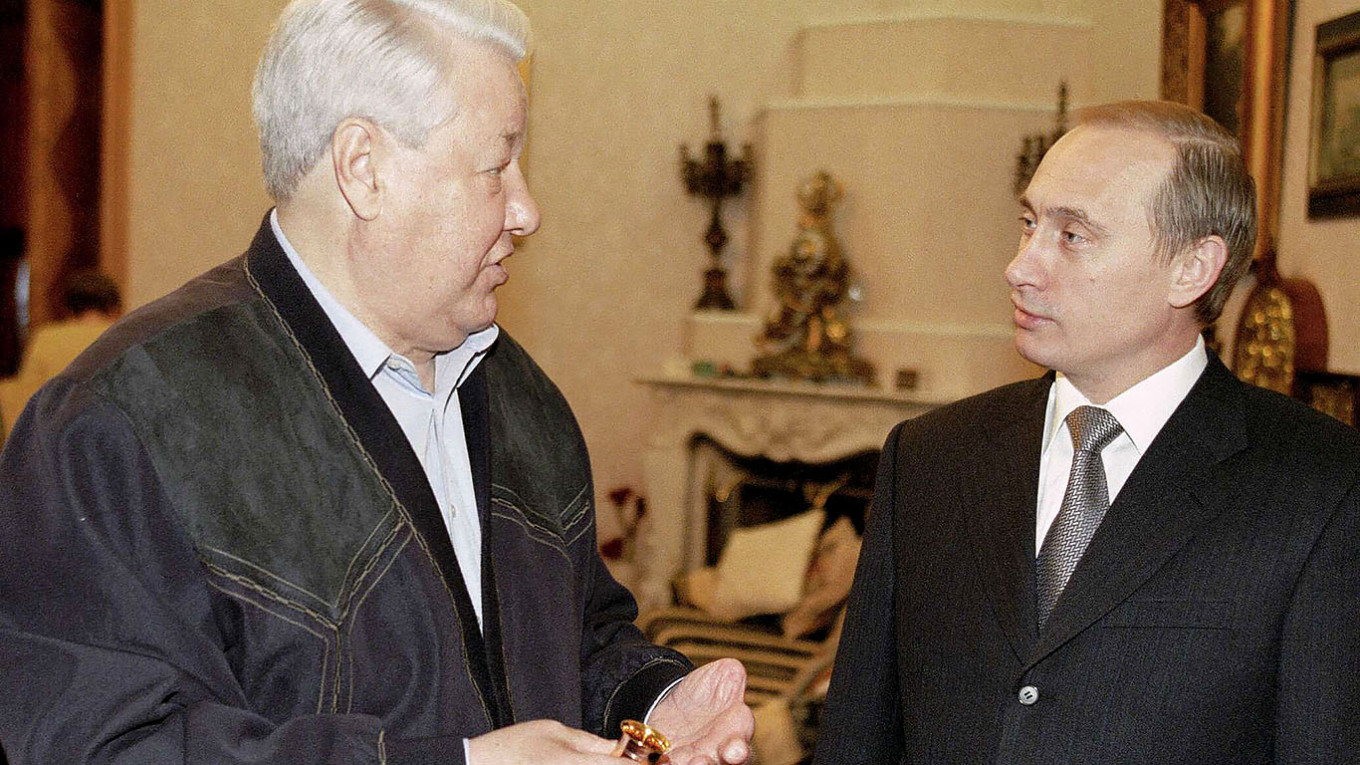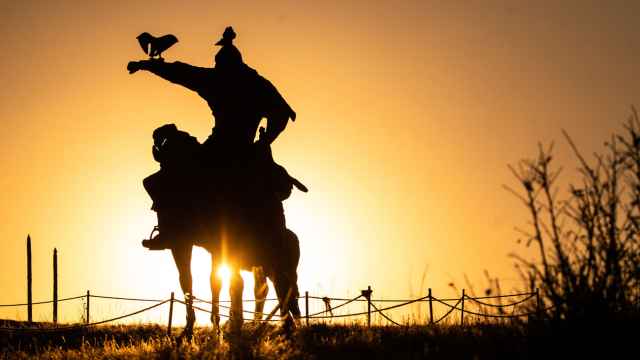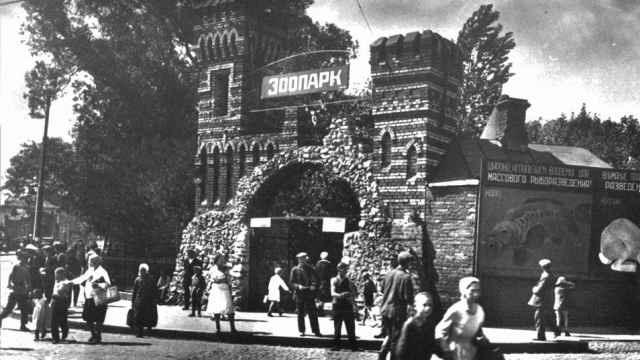A change has begun in the Russian democratic opposition as a new generation comes to terms with how the catastrophic betrayals of the 1990s define Russia’s present. Open dialogue about this era, long taboo, is essential for any hope of establishing the freedom and justice that were within reach but never appeared after the fall of the Soviet Union.
At the vanguard of this change is the recent documentary “Traitors” from the Anti-Corruption Foundation (ACF), in which Maria Pevchikh exposes the mistakes of the Russian government in the 1990s. The film may have an effect comparable to Nikita Khrushchev's report that exposed Stalin's personality cult at the 20th Congress of the Communist Party of the Soviet Union, opening up a vital opportunity to reform a deeply damaged system.
In the eyes of most Russians, democracy and liberalism have been tarnished by their association with Boris Yeltsin and the chaotic 1990s. Therefore, the quest to build a democratic future for Russia will have to learn from the mistakes of that infamous decade, which allowed the country to slide into today's rigidly authoritarian regime.
The 20th Congress, though read behind closed doors, launched a long process of rethinking the ideas of socialism. The movie "Traitors" – streamed to an audience of millions – could be something similar in terms of the future of the ideology of liberalism and democracy in Russia.
Khrushchev's secret speech "On Stalin's Cult of Personality and its Consequences" accused the deceased General Secretary of abusing his power and departing from the foundational “Leninist principles” at the heart of the socialist project.
Pevchikh’s film focuses on the personal role and responsibility of Yeltsin and his inner circle, especially his favorite Valentin Yumashev, for abandoning the basic principles of the rule of law and democratic state in the new Russia.
Similarly, Pevchikh did not advocate for a return to the USSR. She is calling for Russia's democratic future to be reimagined along the basic principles of liberal democracy: the rule of law, separation of powers, protection of minority rights, and a welfare state. None of these basic liberal principles were even close to being fulfilled in the 1990s. As a result, democracy became associated with rampant street crime, poverty and theft by the elite.
Right now we are witnessing the beginning of a difficult and painful generational change among Russian democrats. Discussion of the mistakes and crimes of this era was long monopolized by a narrow circle of personalities who made their careers on state and oligarch-run TV and radio. Any criticism of the heavy-handed practices of the 1990s was ostracized.
Younger voices in Russian politics have long attempted to pierce this veil of silence. Mikhail Zygar's book "All Are Free" was an important step, as it exposed Yeltsin's 1996 election campaign was an important milestone. Last August, Alexei Navalny's open letter "My Fear and Hate" drew global attention to the subject and laid the foundations for 2024’s “Traitors.”
Criticizing the 1990s has finally become acceptable to Russian liberals and democrats. This again allows us to draw parallels with the 20th Congress. Stalin was actively criticized in anti-communist circles even before 1956. However, it was Khrushchev's report that led to discussion within the Communist Party about Stalin’s legacy, which ultimately strengthened support for the party.
Criticism of the 1990s has long been actively used by opponents of liberalism and democracy to further their own interests. Putin builds his image as the savior of the country. But in reality, his policies are a direct continuation of that chaotic era. The most important steps on the way to today’s regime were the granting of emergency powers to Yeltsin in November 1991, the abolition of soviets and the adoption of a monarchical constitution in 1993, and the organization of a campaign to vote for the incumbent president in 1996.
In 2000, Putin received a virtually formalized authoritarian system with a special role of the presidential administration capable of interfering in the activities of all branches of power. Under Putin, the vertical of power was strengthened by the growing influence of the security services, which had not disappeared even in the 1990s, but were kept relatively modest until now. Putin repeatedly strengthened the regime of personal power of the president, but the structural conditions for it emerged in the 1990s.
Maria Pevchikh’s film not only punches a powerful hole in this wall of silence, but also puts an end to the myth that Putin’s Russia was a departure from Yeltsin’s era. The first episode shows a new generation that the 1990s was not a step toward democracy but a transition from a dictatorship of the party to one of personal rule. It showed how the reconstruction of the abandoned building of the Ministry of Health into a house for Yeltsin and his cronies is indicative of the fact he viewed Russia as his property Of course, the newly minted president did not have the wide-ranging powers that his successor would have. But the monarchical principle was already established under him.
Yeltsin was a proverbial good tsar to his entourage of top bureaucrats, security guards, and buffoons like the comedian Zadornov. He gave most of the state’s property away to businessmen close to power in exchange for their personal loyalty. The pledge auctions were also the Kremlin's payment to the oligarchs for their support in the elections. As Mikhail Khodorkovsky now admits, he supported Yeltsin because he was a member of his team and treated him "like a czar.”
Navalny's revolution in the liberal and democratic movement started during his lifetime and has continued since his tragic death. But dismantling the narrative that the 90s was a decade of reforms met with unexpected resistance. The waves of hatred against the ACF team and Pevchikh are stylistically and rhetorically similar to the attempts to resist de-Stalinization on the part of the Stalinists in the late USSR.
To some, the memory of the 1990s remains a “most perfect spring.” But if we were to look back at the 1930s and 1940s through the eyes of the winners of that era – the political leaders and artists rewarded by the state – they would also remember that era warmly, not as a time of famine and purges we know it to be today. It took the Khrushchev thaw for information about the millions of prisoners in labor camps and the hundreds of thousands shot during the Soviet terror, about the enormous sacrifices resulting from mass collectivization to become widely available. All Stalinists could do was underplay the scale of these losses and overshadow them with the myth that industrialization was an economic miracle. In the words of British historian Isaac Deutscher, Stalin "took the country with a plow and left it with an atomic bomb.
Apologists for the reforms of the 1990s similarly say that the decade started with empty shelves in stores and ended with commodity abundance. It is that economic transformation, as well as the nuclear weapons Moscow inherited from the Soviet Union, that have secured the strength of Putin’s Russia.
Apologists for Yeltsin and “the family" hurl similar excuses at their critics like Pevchikh: mistakes were made, but they must be put in context. Besides, it must all have been for the best judging from the subsequent achievements of the Russian economy.
Both of these groups ignore the simple fact that the verdict on history is always made at a distance of decades and centuries, not by those who lived in the times described. Each successive generation is entitled to its own questions and conclusions about previous eras. Sometimes in the past one can find predictions of the future that have come true.
Exactly two years before the start of radical market reforms in Russia, British sociologist Teodor Shanin published the article "Western Experience and the Danger of Stalinism in Reverse.” In it, he warned of the danger of reducing the diverse and contradictory experience of Western European countries to a vision of capitalism drawn from Soviet textbooks and distorted perceptions about the free market. He warned that the Western experience was richer and broader than Thatcher's neoconservative policies, and included successful examples of state and, more importantly, social control over the economy.
The sociologist, known for his sympathy towards Russia, questioned the notion, popular in the Perestroika era, that the transition to capitalism required a program "that would be final and infallible.” He believed that putting such a program into practice would inevitably break society at its knees. Hence the threat of a repetition of "Stalinism in reverse," when reformers dogmatically follow the chosen course and are unwilling to balance it with the interests and aspirations of the people.
It would certainly be unfair and unhistorical to equate Stalin and Yeltsin with each other. They acted in different historical conditions and made different sacrifices to preserve their own power. But despite the stark differences between the 1930s and 1990s, they were continuations of each other. Both eras saw the interests, lives, and dignity of its people as worthless compared to the tasks of ideological transformation, first to Communism, then to capitalism.
At both turning points the groups of "progressives" who found themselves in power had their own ideological fetishes which they inexorably followed in the interests of maintaining power, without regard for human losses. This is what, following Shanin, can be called the essence of Stalinism, regardless of who ordered it.
This is exactly where the defenders of the 1990s will argue there is a key distinction: for all the chaos, Russia was free. They say the totalitarian state had finally disintegrated and stopped interfering in people's lives, and that people who could take advantage of this freedom not only won materially but morally.
The freedom Russians experienced under Yeltsin was only freedom from the firm grip of the state, not freedom to participate in the affairs of the state and society. Just a decade later the state regained strength and took back its power.
Overwhelmed by widespread poverty and the need to fight for survival, almost all citizens for a while found themselves orphaned by the state. Social programs were shrunk. Then in 1994, the Kremlin began massacring its own citizens in the First Chechen War. Though the devastation went unnoticed by many in Moscow, the legacy of the war has shaped Russia's trajectory ever since.
Is it any wonder that mass demonstrations took a further 18 years to resume in Moscow after the bloody massacre of October 1993? That is how long it took for a new generation to grow up. A generation the same age as Pevchikh and Navalny – unafraid of violent police crackdowns and even tanks on the streets.
It is quite natural that the discussion of the ACF's movie about the 1990s has primarily involved representatives of the last waves of emigration from Russia. Fleeing abroad, often forced by serious threats, destroys a person’s previous conception of the world. Marooned in their new lives, social capital largely left behind, they made a crucial mistake.
The ACF's film provoked an aggressive and irrational flood of hatred against the ACF and Pevchikh. In the eyes of the general public, it turned out to be a revealing act of intellectual suicide. It also included slanderous claims about Pevchikh’s father, concocted in a Stalinist spirit to condemn her by association.
Representatives of the intellectual mainstream of the Yeltsin and Putin era are inevitably being replaced by people with their own experiences and worldviews. The ACF, led by young and middle-aged people from the middle strata of Russian society, claims to be the vanguard of this new movement. Unlike the heirs of the Soviet nobility in the 1990s, their intellectual base is a new generation of Russian social scientists polished by Western academia and are imbued with ideas of social justice and do not think of themselves as elite. As such, they are far closer to understanding the needs and aspirations of the masses. They do not look at their compatriots as their serfs, but as people who deserve to live in an equal and free society for all. This is an important prerequisite for the real and long-term democratization of our country.
It is high time for the Russian opposition to get out of the pseudo-elitist ghetto that the authorities drove it into during the 1990s and learn to speak to the public in a way that they can not only understand but makes them feel respected. We are not talking about a single party, but rather about a popular front - a broad coalition of democratic and leftist movements that can offer a real alternative to today's hopeless state of affairs. “Traitors” provoked a major reset of the entire system of values and political priorities of the opposition both in Russia and beyond.
A Message from The Moscow Times:
Dear readers,
We are facing unprecedented challenges. Russia's Prosecutor General's Office has designated The Moscow Times as an "undesirable" organization, criminalizing our work and putting our staff at risk of prosecution. This follows our earlier unjust labeling as a "foreign agent."
These actions are direct attempts to silence independent journalism in Russia. The authorities claim our work "discredits the decisions of the Russian leadership." We see things differently: we strive to provide accurate, unbiased reporting on Russia.
We, the journalists of The Moscow Times, refuse to be silenced. But to continue our work, we need your help.
Your support, no matter how small, makes a world of difference. If you can, please support us monthly starting from just $2. It's quick to set up, and every contribution makes a significant impact.
By supporting The Moscow Times, you're defending open, independent journalism in the face of repression. Thank you for standing with us.
Remind me later.








